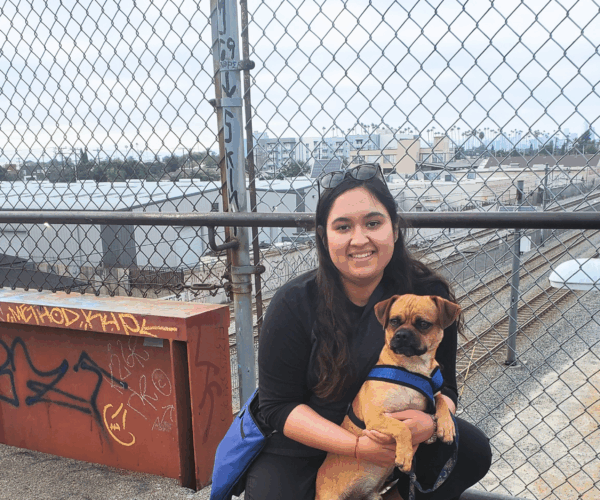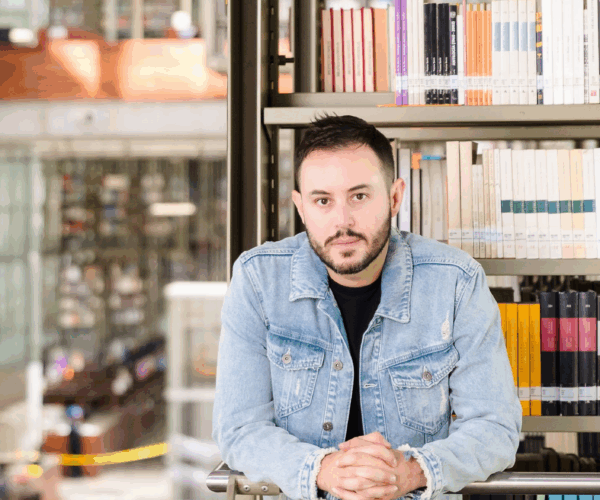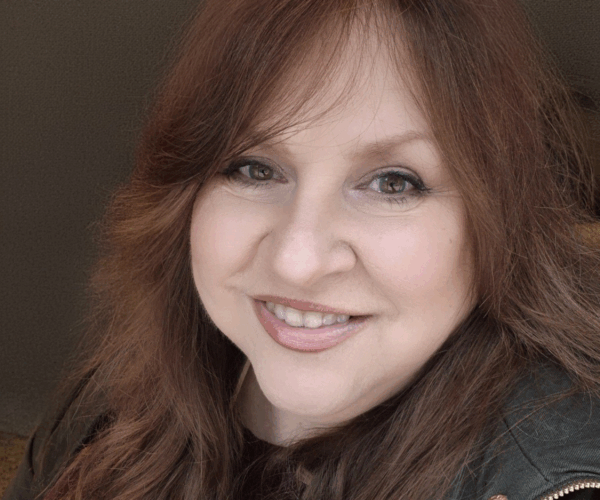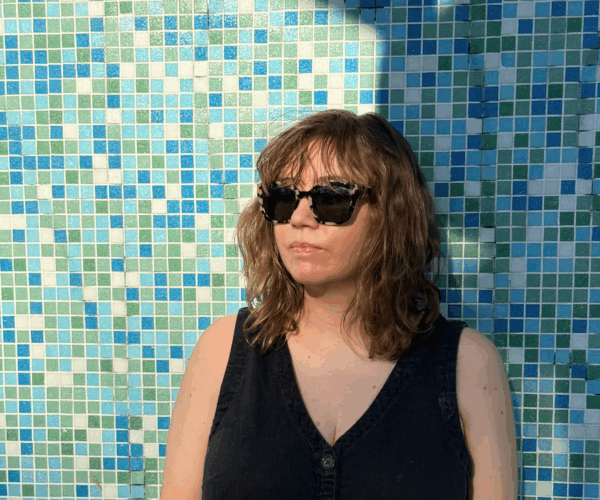Boot Camp Graduate: Mariko Lochridge
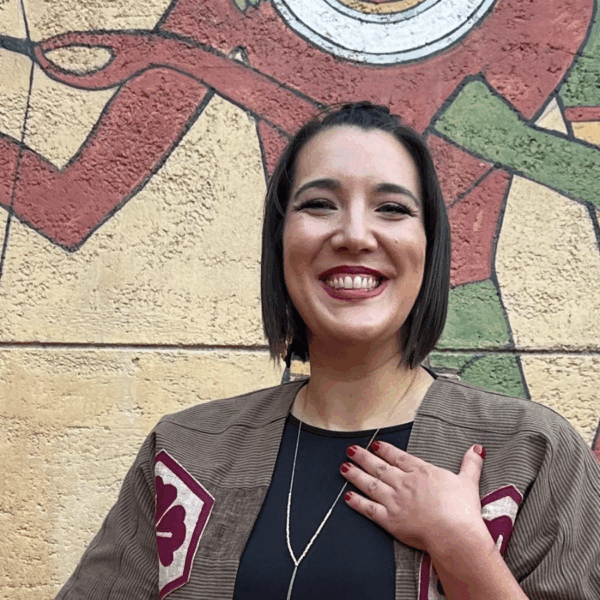
Boot Camp Graduate
Mariko Lochridge

Hello, Mariko! First, can you tell us a bit about yourself and your personal connection to preserving historic and cultural places?
I’m currently the Small Business Programs Coordinator at the Little Tokyo Service Center (LTSC). I’ve worked all over L.A. County but since the pandemic, I’ve been hyper-focused on legacy businesses in the Little Tokyo area and LTSC’s Small Biz Hype Squad program I co-founded in 2020. Previous to working at the LTSC, I was an international breaking news journalist.
I spent my formative years between the United States and Japan, where I began my first and second career. When you live in Japan, you kind of take historic preservation for granted. In between two skyscrapers in Tokyo, you’ll see a tiny, 4–foot–tall altar that’s been preserved because it has spiritual, historical, and cultural relevance. Rather than knock these types of things down, they will literally build around them. You’ll see temples and shrines sandwiched in between skyscrapers.
When I started working in the U.S., I would visit Los Angeles and and work around Southern California. I began to realize what a privilege it is to have old structures to look at and places that have existed for hundreds or even thousands of years. We have legacy businesses that can trace their history back over one thousand years in Japan. That disposition of my two lives and my two cultures is where my interest in legacy businesses and historic preservation started.
Then, when the pandemic started and the rapid closures and potential erasure of legacy businesses was becoming clear in 2020, it became less about historic preservation and more about community storytelling. I realized the stories that were a huge part of our local history—stories that nobody else knew—would be lost the second the spaces were gone, and that’s how I ended up becoming activated and wanted to do something.
What led you to participate in the Conservancy’s Community Leadership Boot Camp? How did you find out about it?
In 2020, in the height of the pandemic, I realized there hasn’t been a system for thinking about legacy businesses in the U.S. until very recently. I was trying to design programs to assist Little Tokyo’s legacy businesses in real-time, and I had very little framework or guidance to work with. I spent quite a bit of time researching the “Bares Notables” (“historic cafes”) system in Buenos Aires where legacy businesses apply to officially be recognized by the government. I’ve actually gone to Buenos Aires to speak with some of the people who designed the program and some participating business owners. Big shout out to Bares Notables owner, Martin Auzmendi, whose pizza shop Cafe Bar Roma turns 100 next year and writer Carlos Cantini for being such generous resources and collaborators.
When I first started working in the Little Tokyo neighborhood, the resident artists at 800 Traction Avenue in the Arts District were being evicted which was very controversial. The building owners ended up getting Historic-Cultural Monument status for that property and, while the building was protected, the nomination did not mention the contributions of Japanese American artists, who were a huge part of the property’s history. These resident artists were also ultimately displaced. This showed me how historic preservation could be used in both good ways and bad ways, and how it can also result in erasure.
I was looking for tools to help preserve Little Tokyo’s legacy businesses when I came across information about a Boot Camp program in the Conservancy’s newsletter. I reached out to the Conservancy’s then neighborhood outreach manager, Lindsay Mulcahy, to learn more about it, and she encouraged me to apply. At first, I was hesitant. I’m not a historic preservationist, and I don’t work in architecture. But what I appreciated most about my conversation with Lindsay was that she addressed one of my main concerns—how the field of historic preservation can feel like a very “castle on a hill” mindset and dominated by White Anglo-Saxon Protestant attitudes around architecture while lacking in voices from the community. She didn’t dismiss my concern. She spoke with me about how the Conservancy was taking a leadership role in approaching historic preservation not just from an architectural standpoint, but also from a community-centered perspective. That’s when I decided to join the program. Later, I was even asked to lead our field session. We did a historic walking tour of Little Tokyo where I introduced my cohort to several legacy business owners. So that’s how I found out about the program, chose to join, and ultimately how I got involved as a community planner.
What have been your biggest takeaways or most valuable lessons from the program?
Undoubtedly, based on my experience in Boot Camp, I reorganized the Small Biz Hype Squad program at the Little Tokyo Service Center into its current iteration.
The program originally started in 2020 as a joint effort between Go Little Tokyo (which was then run through CARS with Metro funding), the Little Tokyo Community Council, and the Little Tokyo Service Center. It was created as an emergency response program to address the challenges and impacts of COVID-19 on small businesses. Back then, it functioned mostly as a matching program—we had close to 100 people sign up and get paired with various businesses to support their initiatives. Some of those pairings were one-time efforts, while others turned into ongoing support.
In the summer of 2023, I joined the Conservancy’s Community Leadership Boot Camp program. I don’t have a background in teaching, curriculum design, youth work, anything like that—so being in a program that was so thoughtfully structured was really nice to be a part of and observe. It was designed in such an intentional way that worked for busy people, allowing us to learn asynchronously, but also to collaboratively think through ideas together in a hybrid setting—both online and in-person.
Following my experience in Boot Camp, I went on to reorganize the Small Biz Hype Squad program into more defined tracks and advocated for a partnership with UCLA that came to fruition. I also had never thought about the idea of creating “cohorts.” The original version of the Hype Squad program just kept going without any real structure, because we never imagined it would last so long. We didn’t plan for onboarding and offboarding of participants—but seeing how a program like the Boot Camp handled that was eye-opening
What do you love about your neighborhood and community? What makes it unique?
One thing I love about the Little Tokyo community is that it has fully embraced its own identity in a way that’s inclusive and self-aware. I think a lot of that is thanks to the amazing work done by Nikkei Progressives and the Little Tokyo Historical Society. They’ve helped shape this understanding that while Japanese American history is a strong and foundational part of the neighborhood, Little Tokyo is also an intersection—a home to many diverse communities, past and present. So many different histories have passed through this neighborhood: from the Tongva people, to Biddy Mason and Pentecostalism, to Bronzeville, and of course, the Japanese American experience. Today, we also have a very strong Latino working-class population.
I’m really grateful that there’s been intentional work done to recognize and uplift all of these intersecting cultures and histories. Because it would be very easy to overlook the contributions of other communities and center only one narrative—especially with a name like “Little Tokyo”. But here, people are actively pushing against that tendency.
Another thing I love about Little Tokyo is the high concentration of nonprofit organizations, legacy businesses, and arts and cultural institutions. We have so many museums, schools, community spaces, a community gymnasium, all within our neighborhood. And I think one of the main reasons we’ve been able to maintain some degree of community control—despite being in an incredibly challenging area, in terms of development pressure—is because this neighborhood is so much more than just a collection of businesses or residents. Within our tiny 3×3 block radius, we have almost everything a community needs. That didn’t happen by accident. It’s the result of decades of planning, organizing, and vision within the community. People here are constantly asking, “What’s missing? What does our community need?”
When I look at the planners and community leaders in this neighborhood, I’m always struck by how much long-term dedication it’s taken to bring these ideas to life. For example, I’ve heard stories about our community rec center—it’s a beautiful, thriving space now, open seven days a week—but it took 20 or 30 years of work to make it a reality. People stayed on that journey the entire time. That level of commitment and planning is a great model for other communities.
We have amazing elders, an incredible ecosystem, and a clear call to action rooted in our history—especially the forced imprisonment of Americans of Japanese descent. That history has created a sense of urgency, deep commitment, and intergenerational investment in preserving Little Tokyo. It’s a unique opportunity and a privilege to be part of this community and to learn from it. The Little Tokyo Historical Society is also incredibly strong when it comes to documenting and sharing our history. Being part of that larger ecosystem continues to inspire how I think about legacy, preservation, and impact.
Are there any current preservation efforts in your community that you would like our members to know about?
Yes, I’m excited to share the Little Tokyo Community Impact Fund has officially purchased its first property—an incredible milestone. It’s a collective effort involving hundreds of people who have each bought small shares to help acquire a single property in the Little Tokyo neighborhood.
I think the Community Impact Fund is an amazing model of how people can unselfishly reinvest in their neighborhoods. One of the most powerful things I’ve seen is that some community elders have purchased shares on behalf of their children or grandchildren—people who, right now, may not have the financial means to participate. It’s kind of like starting a college fund or a savings account, but instead of saving for education or a house, they’re investing in their family’s future stake in a neighborhood that holds cultural and historical significance.
Buying a share in the fund means you’re making a community investment in someone’s name. It’s saying: “I’m investing in this neighborhood and in your future connection to it.” And it’s not just symbolic. Shareholders have rights and responsibilities. They get to vote. They’re part of the decision-making process—just like any investor. Even if a shareholder moves away from Los Angeles, they’ll receive regular updates, reports, and letters from the fund to keep them informed. It’s such a thoughtful way to start building a relationship with your neighborhood—especially for younger generations who may not feel that connection yet. It’s a way of inviting them into a legacy that they’ll eventually help carry forward.
What’s one piece of wisdom or encouragement you’d like to share with someone considering participating in our Community Leadership Boot Camp?
You don’t need to have a background or even a strong interest in historic preservation or architecture to participate in the L.A. Conservancy’s Community Leadership Boot Camp. What’s essential is that you care deeply about a community—one that you want to see preserved, supported, or able to continue offering the same structure and support to others that it once provided for you.
Figuring out where to start can be the hardest part of this work, but the Conservancy’s Boot Camp provides both the tools and the community to help get started. The program connects you with others who are in a similar place—people who care deeply and are ready to learn how to make a difference. So if there’s a place or community that really matters to you, and you want to make sure others can experience it the way you did, then the Conservancy’s Boot Camp is an incredible opportunity.
